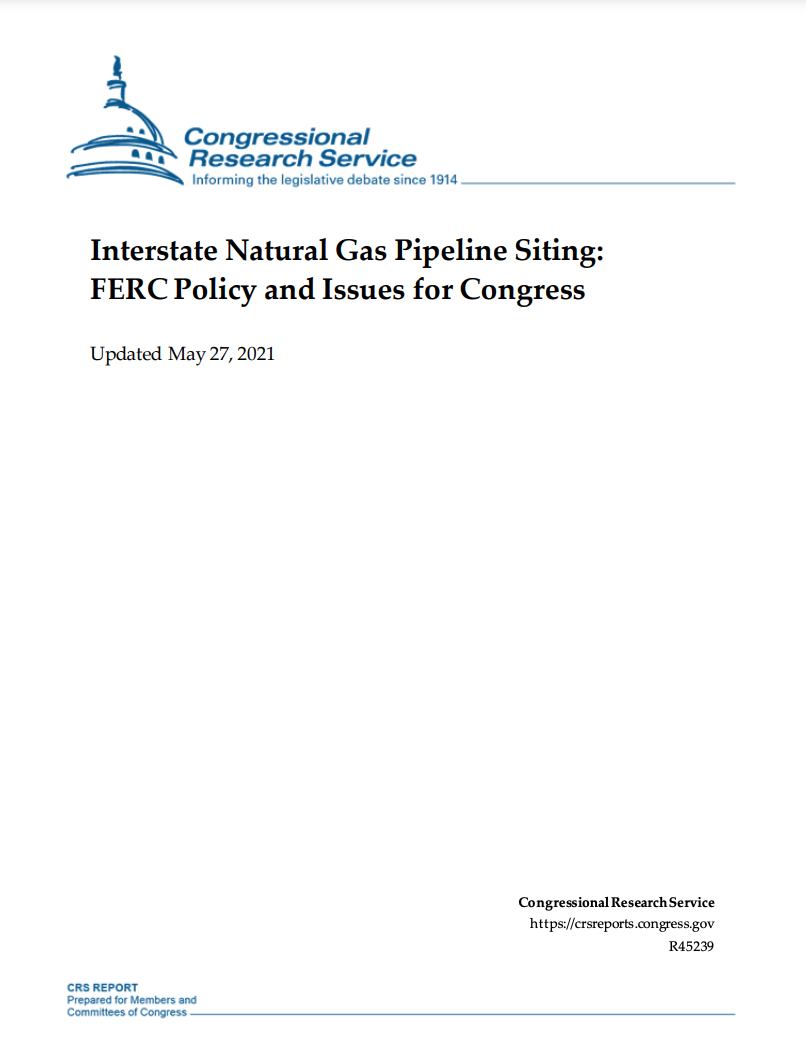Full Title: Interstate Natural Gas Pipeline Siting: FERC Policy and Issues for Congress
Author(s): Paul W. Parfomak
Publisher(s): Congressional Research Service
Publication Date: May 27, 2021
Full Text: Download Resource
Description (excerpt):
Growth in U.S. shale gas production has driven the development of natural gas pipelines from producing regions to consuming markets, typically in different states. If long-term growth trends in U.S. shale gas continue, the need for new pipelines could be substantial. One recent analysis by the pipeline industry projected over 30 billion cubic feet per day of new pipeline capacity would be needed through 2025. This new infrastructure could amount to several thousand miles of additional interstate pipeline and on the order of $40 billion in capital investment.
Under the Natural Gas Act, companies seeking to build interstate natural gas pipelines must first obtain certificates of public convenience and necessity from the Federal Energy Regulatory Commission (FERC). The commission’s regulatory process for certificate applications consists of pre-filing, certificate application, application review (including environmental and other agency review), authorization, and post-certificate proceedings. Several aspects of FERC’s review practices are of interest to policymakers because they have been the subject of FERC dissent, debate in Congress, or litigation. Key challenges to FERC certification involve environmental impact assessment, evaluating project need, review timing, relations with other agencies, changes in industry structure, export issues, environmental justice, and public participation in review.
